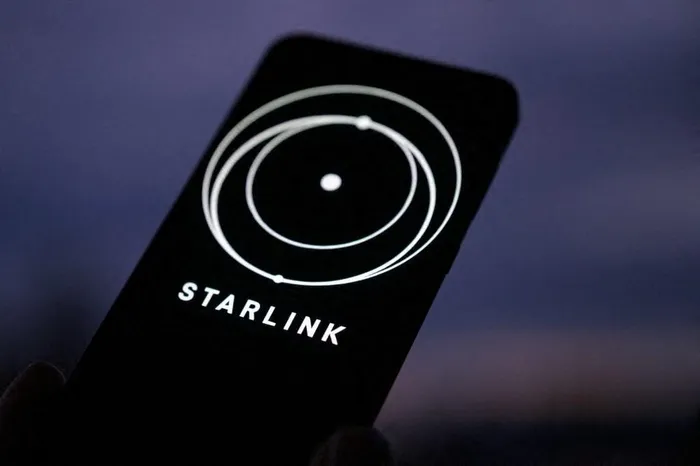Starlink vs 5G: Which internet option is best for South Africa?

The Starlink logo is displayed on a mobile phone in this photo illustration in Brussels, Belgium.
Image: Jonathan Raa/NurPhoto/AFP
Over the last few weeks, we have been hearing a lot about Starlink, the oh-so-revolutionary satellite internet set to change the face of internet forever - but would it really?
The South African government recently issued a government gazette proposing to ease Broad-Based Black Economic Empowerment (B-BBEE) licensing requirements for satellite service companies such as Starlink - a move that has drawn criticism from politicians and citizens alike.
The move begs the question: Does South Africa really need Starlink? Starlink and 5G home internet both promise high-speed, cable-free connectivity, but it's worth noting that they operate on fundamentally different technologies. So, which one offers the best value, performance, and accessibility?
Here’s how Starlink and 5G stack up against each other.
What is Starlink?
Starlink is developed by SpaceX and uses low-Earth orbit (LEO) satellites to beam internet signals to a ground-based dish. This system bypasses the need for traditional cell towers or wired networks, making it a popular option for remote and rural locations where other forms of connectivity are unavailable.
What is 5G?
Once a concern for many and the internet option that attracted several conspiracy theories, 5G relies on nearby mobile towers to deliver signals directly to home routers using a SIM card.
It’s the same technology that powers modern smartphones, scaled up for home use. Because of its reliance on mobile networks, 5G performs optimally in urban and suburban environments with established infrastructure.
Now that we have established what they are, let's weigh them up.
Speed and latency
Starlink typically delivers download speeds between 50–250 Mbps, with latency averaging around 37 milliseconds. This is a significant improvement over legacy satellite services, making it great for streaming and video calls.
5G can hit speeds from 50 Mbps up to a staggering 2 Gbps in optimal conditions. Latency is usually lower, averaging around 27 ms globally, and can theoretically drop to as low as 1 ms in strong coverage areas.
Winner: 5G offers higher peak speeds and lower latency, especially in urban settings.
Coverage and accessibility
In terms of accessibility in isolated locations, Starlink takes this round. This is because as long as users have an unobstructed view of the sky, they can get online.
While 5G is expanding rapidly and excels in populated areas, there are many coverage gaps in rural regions.
Winner: Starlink is the best choice for rural or off-grid users.
Capacity and scalability
5G networks are built with high user density in mind. This means that 5G can handle a massive number of simultaneous connections without a drop in performance.
This might prove difficult for Starlink, which may encounter congestion issues as more users connect to a limited number of satellites. Future satellite launches may improve this, but network strain is a real concern.
Winner: 5G has higher scalability and an established cellular backbone.
Security
5G offers built-in encryption and advanced security protocols to protect user data.
Starlink requires users to implement their own protections, such as VPNs or proxy servers, as its security features aren’t as deeply integrated.
Winner: 5G, due to its built-in security infrastructure.
Cost comparison
Starlink comes with a hefty price tag. If it were allowed in the country, the satellite internet service could cost at least R6,000 for installation, with subscriptions starting from R450 a month.
5G packages in South Africa varies. 5G internet can range from R399 up to R949 per month, depending on the provider, package, and speed.
Winner: Although still a bit pricy, 5G offers better speeds and there is a host of packages to choose from.
Setup and portability
Starlink setup requires a fixed dish installation with a clear line of sight to the sky.
5G routers are portable, essentially plug-and-play, and can be moved as long as there's coverage.
Winner: 5G, due to its flexibility.
Which should you choose?
It ultimately depends on what you are going for.
If you live in a remote area with little or no mobile coverage, Starlink is your best bet. However, 5G is better if you are looking for reliable mobile signal that is faster, more affordable, and more secure.
IOL